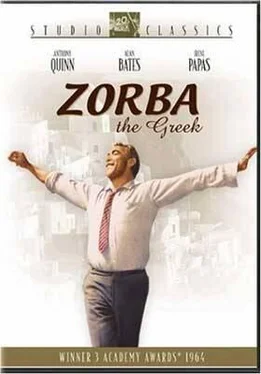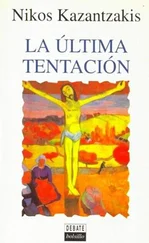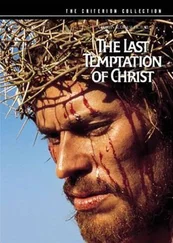Nikos Kazantzakis - Zorba The Greek
Здесь есть возможность читать онлайн «Nikos Kazantzakis - Zorba The Greek» весь текст электронной книги совершенно бесплатно (целиком полную версию без сокращений). В некоторых случаях можно слушать аудио, скачать через торрент в формате fb2 и присутствует краткое содержание. Жанр: Современная проза, на английском языке. Описание произведения, (предисловие) а так же отзывы посетителей доступны на портале библиотеки ЛибКат.
- Название:Zorba The Greek
- Автор:
- Жанр:
- Год:неизвестен
- ISBN:нет данных
- Рейтинг книги:3 / 5. Голосов: 1
-
Избранное:Добавить в избранное
- Отзывы:
-
Ваша оценка:
- 60
- 1
- 2
- 3
- 4
- 5
Zorba The Greek: краткое содержание, описание и аннотация
Предлагаем к чтению аннотацию, описание, краткое содержание или предисловие (зависит от того, что написал сам автор книги «Zorba The Greek»). Если вы не нашли необходимую информацию о книге — напишите в комментариях, мы постараемся отыскать её.
Zorba The Greek — читать онлайн бесплатно полную книгу (весь текст) целиком
Ниже представлен текст книги, разбитый по страницам. Система сохранения места последней прочитанной страницы, позволяет с удобством читать онлайн бесплатно книгу «Zorba The Greek», без необходимости каждый раз заново искать на чём Вы остановились. Поставьте закладку, и сможете в любой момент перейти на страницу, на которой закончили чтение.
Интервал:
Закладка:
The two women were running to and fro in the death chamber, chanting their mirologues while they feverishly rummaged in every little corner. They opened a cupboard and found several little spoons, some sugar, a tin of coffee and a box of loukoums. [30]Aunt Lenio pounced on them and seized the coffee and loukoums. Old mother Malamatenia seized the sugar and spoons. She picked up two loukoums as well, thrust them into her mouth, and for a while the mirologue came out in muffled and choking fashion through the sugary paste.
"May flowers rain on thee and apples fall in thy lap…"
Two other old women crept into the room, rushed to the trunk, plunged their hands inside, picked up a few little handkerchiefs, two or three towels, three pairs of silk stockings, a garter, and thrust them down their bodices, then turned to the dead woman on the bed and crossed themselves.
Mother Malamatenia saw the old women rob the trunk and that put her into a fury.
"You go on; keep going, dear, I shan't be a second!" she cried to aunt Lenio, and dived head first into the trunk herself.
Bits of old satin, an old-fashioned mauve dress, antique red sandals, a broken fan, a new scarlet sunshade, and, right at the bottom, an admiral's three-cornered hat. A present someone had made Bouboulina long ago. When she was alone in the house sometimes she used to put it on and sadly and gravely admire herself in the mirror.
Someone approached the door. The old women went out, while aunt Lenio gripped the deathbed once more and started beating her breast as she chanted:
"… and crimson carnations round thy neck…"
Zorba entered, looked at the dead woman, still and peaceful now, quite yellow and covered with flies, as she lay with her arms folded, and a tiny velvet ribbon round her neck.
"A bit of earth," he thought, "a bit of earth that was hungry… and laughed, and kissed. A lump of mud that wept human tears. And now?… Who the devil brings us onto this earth and who the devil takes us away?"
He spat and sat down.
Outside in the yard the young people were taking their places for the dance. The clever lyre player, Fanurio, came at last and they pulled the tables aside, and cleared away the paraffin cans, the washtub and the clothesbasket, to make room for the dance.
The village worthies appeared: uncle Anagnosti, with his long crooked stick and full, white shirt; Kondomanolio, plump and dirty; the schoolmaster, with a large brass inkhorn in his belt and a green penholder stuck behind his ear. Old Mavrandoni was not there; he had gone into the mountains as an outlaw.
"Glad to see you!" said uncle Anagnosti, raising his hand in greeting. "Glad to see you're enjoying yourselves! God bless you all! But don't shout… you mustn't. The dead can hear, remember, the dead can hear."
Kondomanolio explained:
"We've come to make an inventory of the dead woman's belongings, so that they can be divided among the poor. You've all eaten and drunk your fill, now that's enough. Don't strip the whole place! Look!" he waved his stick threateningly in the air.
Behind the three elders appeared a dozen ragged women, with untidy hair and bare feet. Each one carried an empty sack under her arm and a basket on her back. They came in furtively, step by step, without a word.
Uncle Anagnosti turned round, saw them and burst out: "You get back, there, you pack of gipsies. What? Come to rush the place? We're going to write everything down, item by item, and then it'll all be divided properly and fairly between the poor. Get back, will you!"
The schoolmaster took the long inkhorn from his belt, opened a large sheet of paper and went to the little shop to begin the inventory.
But at that very moment a deafening noise was heard-as if someone was banging on tins, as if cases of cotton reels were falling, and cups were knocking together and breaking. And in the kitchen was heard a tremendous din among saucepans, plates and cutlery.
Old Kondomanolio rushed there, brandishing his stick. But what could he do? Old women, men, children went rushing through the doors, jumped through the open windows, over the fences and off the balcony, each carrying whatever he had been able to snatch-saucepans, frying pans, mattresses, rabbits… Some of them had taken doors or windows off their hinges and had put them on their backs. Mimiko had seized the two court shoes, tied on a piece of string and hung them round his neck-it looked as though Dame Hortense were going off astraddle on his shoulders and only her shoes were visible…
The schoolmaster frowned, put the inkhorn back in his belt, folded up the virgin-white sheet of paper, then, without a word and with an air of deeply offended dignity, crossed the threshold and walked away.
Poor old uncle Anagnosti went about shouting, begging the people to stop, waving his stick at them.
"It's a disgrace! It's a disgrace! The dead can hear you, remember!"
"Shall I go and call the priest?" saïd Mimiko.
"What priest, you fool?" said Kondomanolio furiously. "She was a Frank; didn't you ever notice how she crossed herself? With four fingers-like that-the infidel! Come on, let's get her underground, so that she doesn't stink us all out and infect the whole village!"
"She's beginning to fill with worms, by the Holy Cross itself!" said Mimiko, crossing himself.
Uncle Anagnosti, the grand old man of the village, shook his fine head.
"What's strange in that, you idiot? The truth is that man is full of worms from the day he's born, but you can't see them. When they find that you're beginning to stink they come out of their holes-white they are, all white like cheese maggots!"
The first stars appeared and hung in the air, trembling, like little silver bells. All the darkness was filled with tinkling bells.
Zorba took down the parrot and his cage from over the dead woman's head. The orphan bird was crouching in one corner, terrified; he was gazing with staring eyes but could understand nothing. He pushed his head under his wings and crumpled up with fear.
When Zorba took down the cage the parrot raised himself. He was going to speak but Zorba held out his hand to stop him.
"Quiet," he murmured in a soothing tone, "quiet! Come with me."
Zorba leaned forward and looked at the dead woman's face. He looked a long time, his throat tight and dry.
He stooped, as if to kiss her, but refrained.
"Let's go, for God's sake!" he muttered. He picked up the cage and went out into the yard. There he saw me and came over to me.
"Let's leave now…" he said in a low voice, taking my arm.
He seemed calm, but his lips were trembling.
"We all have to go the same way…" I said to him.
"That's a great consolation!" he said sarcastically. "Let's be off."
"One moment," I said. "They're just beginning to take her away. We ought to wait and see that… Can't you stick it one more minute?"
"All right…" he answered in a choking voice. He put the cage down and folded his arms.
From the death chamber uncle Anagnosti and Kondomanolio came bareheaded and crossed themselves. Behind them came four of the dancers, with April roses still stuck behind their ears. They were gay, half-drunk. Each was holding a corner of the door on which they had placed the dead woman's body. There followed the lyre player with his instrument, a dozen more men who were rather tipsy, still marching, and five or six women, each carrying a saucepan or chair. Mimiko came last, with the down-at-heel court shoes tied round his neck.
"Murderers! Murderers! Murderers!" he shouted gaily.
A warm, humid wind was blowing and the sea was choppy. The lyre player raised his bow-his fresh voice rang out merrily and sarcastically in the warm níght:
"O sun, how hurriedly hast thou set in the west…"
"Come on," said Zorba, "it's over now…"
Читать дальшеИнтервал:
Закладка:
Похожие книги на «Zorba The Greek»
Представляем Вашему вниманию похожие книги на «Zorba The Greek» списком для выбора. Мы отобрали схожую по названию и смыслу литературу в надежде предоставить читателям больше вариантов отыскать новые, интересные, ещё непрочитанные произведения.
Обсуждение, отзывы о книге «Zorba The Greek» и просто собственные мнения читателей. Оставьте ваши комментарии, напишите, что Вы думаете о произведении, его смысле или главных героях. Укажите что конкретно понравилось, а что нет, и почему Вы так считаете.












